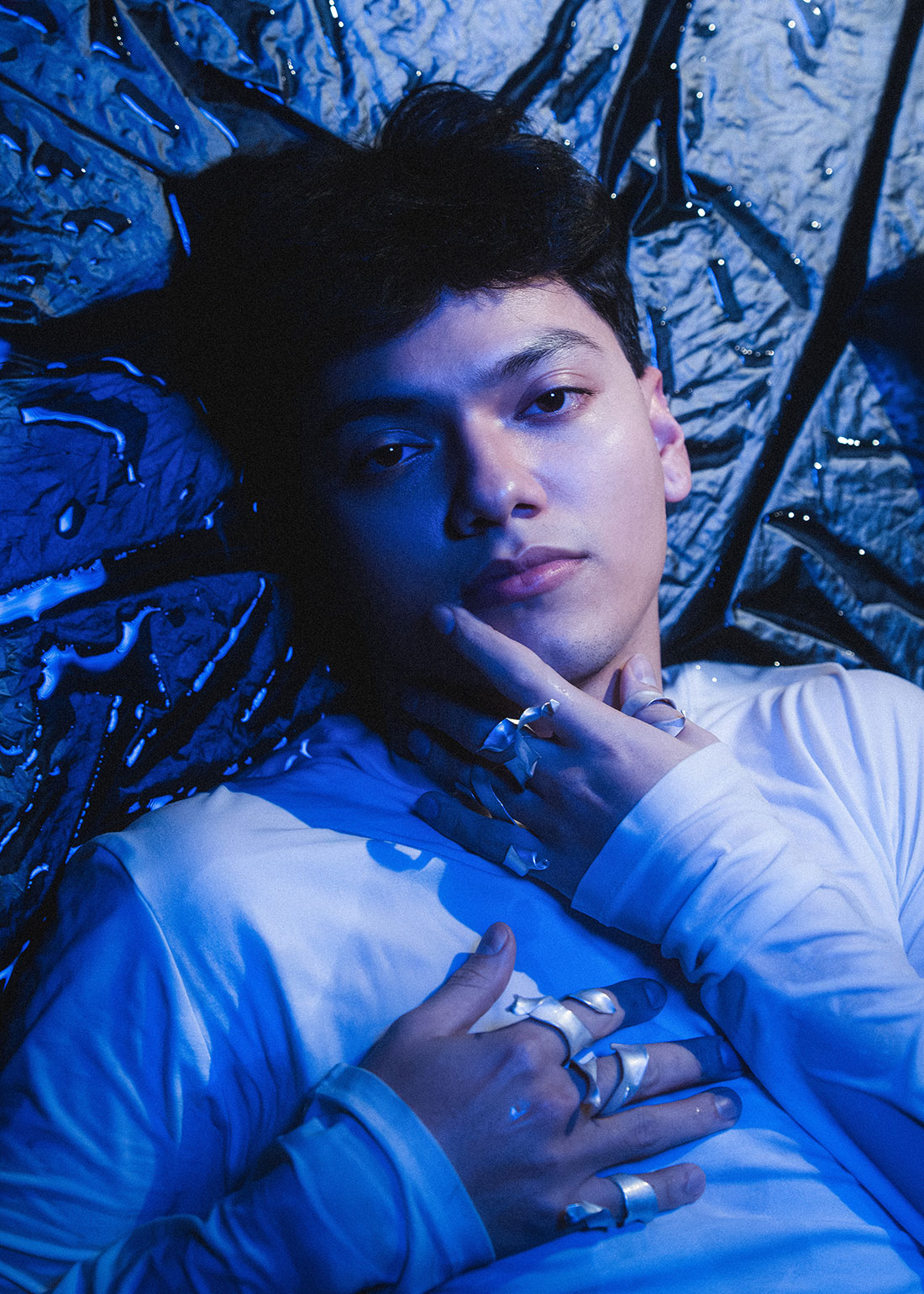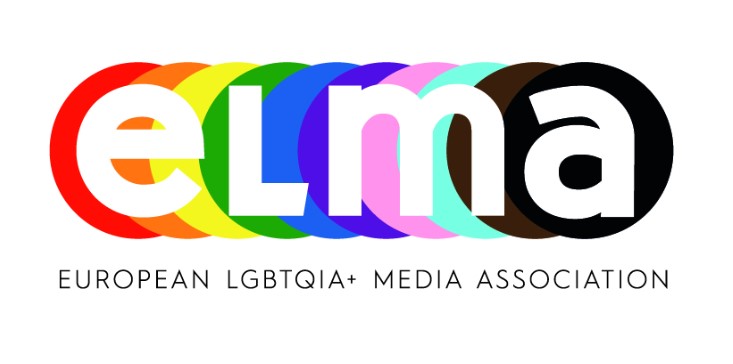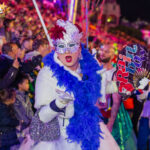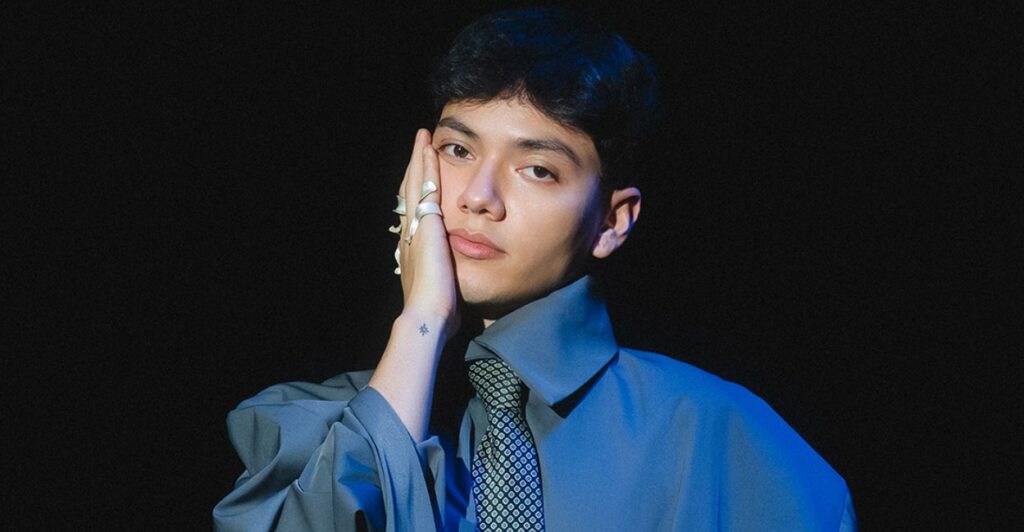With his “pop opera”—as he defines his music—JJ brought victory to Austria at the recent and controversial Eurovision Song Contest, held in Basel, Switzerland, with the song “Wasted Love.” Inspired by heartbreak, the song has put him on the global map.
SHANGAY: Has winning Eurovision changed you in any way?
JJ: No, it hasn’t changed me, but I haven’t fully processed it yet. I wake up in the morning, see the trophy, and think, “Oh, right, something happened” [laughs]. It takes time to realize you’re the Eurovision winner. I’m proud that my art was accepted as it is.
SHANGAY: For the second year in a row, the winning song doesn’t fit the typical Eurovision mold. Were you ever afraid people wouldn’t understand it?
JJ: This is the music I’ve always wanted to make; I was sure this was the path to follow. I’m happy my mix of pop and opera worked so well and was received so positively across Europe and the world. I’ll continue down this path.
SHANGAY: Do you think Eurovision tastes are evolving?
JJ: Yes, things have changed a lot. Many factors come into play: staging, the artist’s charisma… I’m glad people have broadened their musical tastes; that’s important.
Picture :

Pictures : Pavla Hartmanova
SHANGAY: How do you remember the experience, now that you have some perspective?
JJ: It was incredible, I had so much fun. I never stopped, but I had a great team by my side. I made wonderful friends I still talk to all the time: Sissal from Denmark, Kyle from Norway, Miriana from Malta…
SHANGAY: You and Kyle were part of the so-called “twink club”…
JJ: [Laughs] That’s what they called us skinny gays, and we embraced it. Then Miriana renamed us, including herself, the “beauty blenders,” and we adopted it.
SHANGAY: There are now three consecutive Eurovision winners from the LGTBIQ+ community: Loreen, Nemo, and you. What does that mean to you?
JJ: It’s very important for visibility. It shows Europe is open, though we must keep fighting for our rights and greater acceptance. In the end, we’re all human beings and should love and respect each other as equals. Eurovision is open to everyone, and everyone finds their community there. It’s wonderful that such a broad and diverse audience comes together for the festival.
SHANGAY: You’ve never had a problem talking about your homosexuality…
JJ: Being gay is part of my identity, and I’ve always chosen authenticity. I presented myself proudly as I am, which is how we should all be.

Pictures : Pavla Hartmanova
SHANGAY: After winning, you said you didn’t think Israel should participate. Did that cause any problems?
JJ: The reactions were huge because there was more focus on me after winning. I wanted to use that moment. Now I just want to focus on my career and music.
SHANGAY: You grew up in Dubai, not exactly a paradise for the community. Did you feel afraid being gay there?
JJ: I had a very happy childhood and loved Dubai. My mother is Filipino, my father Austrian, so I grew up in a multicultural home and went to an international school. I never felt I had to hide.
SHANGAY: When did you come out?
JJ: I never officially did. My family always accepted me as I am, so it was never something that needed to be discussed. I feel very lucky to have such an understanding family.
SHANGAY: Was it a cultural shock to return to Austria?
JJ: No, because I visited every summer. The weirdest thing was not seeing skyscrapers everywhere and using public transport again. I’m happy to be back in Vienna with my family; I love the city and have made many new friends.
SHANGAY: There are very few countertenors in the world. Has your voice always been a blessing?
JJ: Yes, it’s a gift from God that makes me feel very fortunate. There are very few of us, each in different parts of the world, so it’s not easy to connect. From the start, I focused on exploring my voice’s flexibility and limits, and I’ve built my career on it.

Pictures : Pavla Hartmanova
SHANGAY: You started out in talent shows… Did you think they’d be the key to popularity?
JJ: I always dreamed of being a pop star. I watched Hannah Montana with my sister and wanted to be like her. My first TV experiences helped a lot for Eurovision, as they work similarly: sound checks, rehearsals, going on and off stage… That’s why I was so well prepared.
SHANGAY: “Wasted Love” was born from heartbreak, right?
JJ: Yes, from a relationship where I gave too much love and got nothing back. That’s why I called the song “Wasted Love”—I wasted a lot of love and time on him.
SHANGAY: Did you tell your ex you were going to Eurovision with a song inspired by him?
JJ: Yes, I did. He congratulated me and showed his support. He said he was sorry I had to go through that, but glad he inspired the song—it felt like therapy.
SHANGAY: After winning, we learned you have a boyfriend. How did he experience your victory?
JJ: He was very excited. He was at the stadium with my family. We’ve known each other since before Eurovision, and he’s always supported me. My family loves him, so everything’s great. He’s very happy to see me enjoying myself, and we spend weekends together.
SHANGAY: As a teenager, were all your idols pop stars?
JJ: Most of them. I listened to Kelly Clarkson, Avril Lavigne, Ariana Grande, Mariah Carey. Also two opera divas who inspired me: Maria Callas and Montserrat Caballé. I’ve always been fascinated by high voices, especially sopranos.
SHANGAY: Who is the best pop singer right now?
JJ: It used to be Mariah Carey, now I’d say Ariana Grande.

Pictures : Pavla Hartmanova
SHANGAY: When did you become aware of Conchita Wurst?
JJ: When I watched Eurovision for the first time with my family in 2014. Experiencing such a historic win for Austria at 13 was crazy. Having her support this year was the best. Having a winner from your country root for you was incredible. I’m lucky to have her as a friend. What Conchita achieved was huge, despite detractors. Her victory brought greater acceptance for the queer community and drag artists.
SHANGAY: What message do you want to send for Pride Month?
JJ: Be proud of who you are. Take care of yourselves and those around you, and make sure everyone is treated with respect and love, which is most important. Live each day with pride, because we are unstoppable, and be happy.
Source:
Agustín Gómez Cascales, “JJ, ganador de Eurovisión 2025: ‘Vivid cada día con orgullo, porque somos imparables’,” Shangay, June 23, 2025.
Full article (Spanish)
This article is accessible to you thanks to ELMA, the European association of LGBTQIA+ media.

You may also like
-

Niall Horan, Soft-Spoken Pop Star – And Loud LGBTQ+ Ally
From Pride tweets to rainbow flags in the crowd, Irish singer Niall Horan has quietly
-

Angèle x Justice’s “What You Want”: A Queer Night Out We’ve All Dreamed Of
Projected onto the façade of La Monnaie in Brussels and shot at night in Marseille
-

Ten Years of Balkan LGBTQIA: A Decade of Fighting Borders, Discrimination and Silence
Created in Brussels by volunteers from across the Balkans, Balkan LGBTQIA has spent ten years
-

Queens of the South: When Nice Turns Carnival into Queer Celebration
On 27 February 2026, Place Masséna in Nice will shimmer a little brighter. Lou Queernaval,
-

Cœur de pirate at AB: the runaway pop of a queer icon lands in Brussels
A major figure in Francophone pop and an outspoken voice in the queer community, Cœur de pirate

